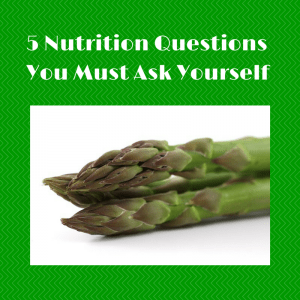5 Common Myths About the Flu Shot
By Ryan Aubuchon, MD, Pediatrician at Westgate Pediatrics, Wake Forest Baptist Health
Flu season is coming soon. And even though the flu shot is the best way to protect kids ages 6 months and older from the flu, many will remain unvaccinated. There are often misconceptions about the flu shot—or doubts regarding its effectiveness. To better understand this vaccine, it’s helpful to look at common flu shot myths.
Myth 1: The flu shot will make my child sick.
This is perhaps the most frequent objection to the flu shot. However, there isn’t data to back it up. Researchers have studied whether the flu can be caused by the flu shot, and they’ve found that it’s not possible. This doesn’t mean, however, that your child won’t experience temporary side effects from the shot. Symptoms like low-grade fever and runny nose are sometimes experienced for a day or two following a flu vaccination. While these responses can seem like an illness, they’re really just side effects that will go away in a couple of days—and they are certainly far milder than the symptoms caused by the flu.
Myth 2: My child has never had the flu, so he or she doesn’t need the shot.
Another variation of this myth is that having received the shot in the past will protect your child for several years to come. The flu isn’t an illness that you can build up a special immunity toward—nor is it one that you can vaccinate against only one time. The viruses responsible for the flu change from year to year, which makes getting a flu shot each flu season essential. The flu can pose a huge threat to the health of children, so it’s important to get them vaccinated every year. Parents of babies over 6 months of age sometimes want to wait until their child is a bit older, but the flu shot is a critical preventive tool for young children. Babies and small children are among the most vulnerable to complications and death from flu.
Myth 3: It’s too late for my child to get the flu shot.
The best time to get the flu vaccine is in September or October, but sometimes clinics are limited by vaccine supply distribution. As soon as it’s made available, doctors start giving it out. If you miss getting the flu shot for your child in the fall, it’s not too late to get it in the winter. Flu rates usually start increasing around December and January—peaking in February—so get it as soon as you can. When your child gets the flu vaccine, he or she will have an antibody response within two weeks of getting the shot.
Most clinics will continue giving the flu shot until supplies run out. The CDC recommends ending a season’s flu vaccine June 30th of each year. However, children in the first year of life will need a booster dose of the vaccine four weeks after the first one. For those children, we will continue to offer the vaccine after flu season.
Myth 4: If my child gets the flu, an antiviral medication will take care of it.
If your child does come down with the flu, an antiviral medication like Tamiflu can be given within 48 hours of the illness’ onset. This medication will make the course of the flu less severe, decrease the odds of complications, and shorten the duration of the illness. However, the vaccination is still superior. Antiviral medications are not silver bullets, and your child will still be sick if he or she gets the flu. The medicine alleviates the burden caused by the illness, but it doesn’t take it away. There are also adverse effects, such as vomiting, that can sometimes be caused by antiviral medications.
Myth 5: The flu vaccine is mostly ineffective.
At the end of every flu season, the CDC evaluates the effectiveness of the previous season’s flu vaccine, comparing it to actual instances of flu. It’s true that some seasons the vaccine isn’t as well matched for the circulating flu viruses as it is during other years. At the beginning of a flu season, we can’t always know how effective the flu vaccine is going to be for that year. However, we do believe that the vaccine will potentially reduce the severity of the illness if your child goes on to contract the flu. We also know that not getting the shot is not worth the risk, considering the many times it does protect against the flu.
Westgate Pediatrics has already received a supply of the flu vaccination for the 2016/2017 flu season. Contact 336-716-WAKE to schedule a shot for your child. For more information about our primary care offices or physicians at Wake Forest Baptist Health, visit www.WakeHealth.edu.
*Sponsored by Wake Forest Baptist Health







